- Home
- UFAI in the News
- UFAI Medical Publications
- Shoe Recommendations For Patients
Shoe Recommendations For Patients
- Published 4/24/2017
- Last Reviewed 3/7/2022

Written by: Bob Baravarian, DPM and Laura Bohman, DPM
When patients come into the office with heel pain, tendonitis and/or capsulitis, it can be easy to convince them to stretch, massage, take anti-inflammatories, rest and use orthotics. What can often be a struggle is to alter the shoes they choose to wear as this can be a very personal decision. Whether it is due to attire restrictions, cost or personal style, suggesting a change in their shoes is not always what patients want to hear.
A Google search on top selling athletic shoes in 2016 reveals that Nike takes the top five spots. Nike’s 2016 fiscal review statement states the brand’s revenue was $30.5 billion, which was up 13 percent from the previous year. When looking on the Nike website under running shoe, the company promotes a “most natural: dynamic and flexible” shoe. A slimmer, more streamlined shoe is pictured.
At our institutions, we have a population that is overall very healthy and active. Some common complaints we treat are heel pain, Achilles tendonitis, posterior tibial tendonitis and metatarsalgia. Very often, these same complaints arise in those individuals who are wearing flexible/soft shoes, flip-flops and/or very flat shoes. With that population, we have seen that the vast majority of patients do very well with stretching, foot massage, anti-inflammatories, rest, orthotics and changing their footwear to a shoe with a more rigid sole.
Apart from our initial treatment visit, we recommend several brands and styles of shoes for people to wear. We tell them to try to bend and flex the shoe, and if they find the shoe to be soft, they should move on to the next shoe. This can be frustrating because it often means that their closet full of flexible shoes may not be best to address their pain. To better specify to patients what types of shoes would be best for their specific pathology, we went to several athletic shoe stores to evaluate shoes ourselves.
As a general consensus for shoes, we recommend a stiff-soled shoe that does not bend or twist with stress. Most patients think cushioning is a winner but cushioning without support causes more stress on the foot and that leads to fatigue and pain. Stiff-soled shoes can come with a soft upper and that is great. For uppers, we suggest a softer material such as a woven mesh or a soft calfskin leather that will accomodate deformity and allow for stretching in areas of pressure. Remember the concept that a wooden-soled clog is often more comfortable than a soft, mushy Keds shoe. The reason is the foot is supported and there is less stress on the bones, tendons and joints.
Essential Keys To Recommending Athletic Shoes
Athletic shoes come in a variety of styles and sizes. Unless a patient has a very rigid and fixed cavus foot, it is rare for us to prefer a soft, flexible shoe to a rigid and stable shoe. In the case of the very high arch foot, a shoe with strategic cushioning and some support is better than a very rigid shoe. In all other cases, we suggest a more intermediate to rigidly designed shoe. A negative heel will cause stretch on the Achilles and can also cause heel pain so we stay away from a negative heel shoe. We also like shoes that have a soft upper with less strapping and fewer design accents so the shoes do not rub or irritate the dorsum of the foot. Here are some shoes to consider.
Rearfoot pain. Patients with heel pain, Achilles tendonitis and/or flat feet do well in shoes with a slight heel (that immediately excludes the “zero drop” Altra brand) and a sturdy hindfoot and midfoot. Most shoes in your typical running store that are not minimalist shoes fall into this category. My favorite brands continue to be ASICS, Brooks, New Balance and Hoka. Specifically, the brands that we tested and felt were very stable (in no particular order) are the ASICS Gel-Kayano, ASICS GT2000, New Balance (NB) 1260, NB 990, NB 860, Hoka shoes, Brooks Transcend, Brooks Beast, Brooks Adrenaline and Brooks Ariel. We found that Saucony, even with its stability brands, tends to be a softer shoe type.
Forefoot pain. Patients with plantar forefoot pain such as predislocation syndrome or generalized metatarsalgia tend to do well with a shoe with a stiff forefoot. Most shoes in the stability category still have a relatively flexible forefoot. The Brooks Beast, Brooks Adrenaline,Hoka Bondi Hoka Conquest, New Balance 1260 and ASICS 1260 had the most support to the forefoot. We think this category is the most difficult to treat with athletic shoes. It is a good idea to warn patients that this part of the shoe tends to wear out quicker than the remainder of the shoe.
We have found patients with dorsal forefoot pain from hammertoes, bunions or tailor’s bunions require more accommodation with the fabric on the top of the shoe. Nike does well adjusting for deformities with their Flyknit material. The Nike Pegasus and Nike Vomero 12 were moderately stable shoes with a stretchable, more accommodative upper to allow for deformities. With the lack of plastic strapping across the forefoot, the Mizuno Wave Inspire design had room for bunion and tailor’s bunion deformities. Hoka, Brooks, ASICS and New Balance all have wide version options included for patients who need more forefoot room.
Helping Patients Find Appropriate Dress Shoes
Athletic shoes are not always appropriate in office environments or formal situations. However, the concepts when purchasing a dress shoe remain the same. Again, we recommend a stiff sole with a slight heel.
Men should wear dress shoes with a slight heel and a thicker sole. Women have slightly more options. A platform wedge tends to be the most popular option with a 1.5 inch to 2 inch heel height difference from the forefoot of the shoe. We find that a slight heel removes the pronatory forces off the foot from a tight Achilles. This tends to reduce pain in patients with plantar fasciitis, Achilles tendonitis and posterior tibial tendonitis.
A rigid forefoot platform that prevents motion at the forefoot can help with forefoot pain and toe fracture pain, and in post-surgical patients who are transitioning from a boot/athletic shoe to a dress shoe. There are good options to choose from with Clarks for women and Cole Haan for men. When patients have bunions, hammertoes and tailors bunions, and do not want them surgically repaired, we recommend buying shoes with real leather uppers that patients can stretch or that will adjust to their feet over time. Plastic and faux leather materials can be very irritating to deformities.
What To Recommend When Patients Prefer Sandals
In southern California, most people do not want to be confined to enclosed shoes. Two sandal brands that patients like are FitFlops and Birkenstock. The FitFlops provide a relatively rigid sole with a stable platform and a slight heel. We tell patients to make sure the shoe is attached closely to the ankle or around the ankle to prevent the foot from leaving the shoe when ambulating. Birkenstock sandals mostly have a rigid sole and are attached close to the ankle.
In Conclusion
There are many shoes in the athletic, dress and sandal categories that we have not mentioned, but one can still follow the aforementioned suggestions. We have found it is beneficial to provide a guide to patients to teach them how to find shoes that can help ease their pain and return them to normal activity. This, however, does not mean patients have to throw away their flip-flops and stilettos forever. Like most things in life, moderation is the key.
Dr. Baravarian is an Assistant Clinical Professor at the UCLA School of Medicine, and the Director and Fellowship Director of University Foot and Ankle Institute in Los Angeles.
Dr. Bohman is a Fellow at University Foot and Ankle Institute in Los Angeles.
 The treatment I receive from everyone at Dr. Kelmans office is superior to others. I am always treated as a person, not just a ...Paul M.
The treatment I receive from everyone at Dr. Kelmans office is superior to others. I am always treated as a person, not just a ...Paul M. I liked it.Liisa L.
I liked it.Liisa L. I depend on the doctors at UFAI to provide cutting edge treatments. Twice, I have traveled from Tucson, Arizona to get the car...Jean S.
I depend on the doctors at UFAI to provide cutting edge treatments. Twice, I have traveled from Tucson, Arizona to get the car...Jean S. Great staff, great location, the surgery itself went perfectly. I'm recovering well and feeling great. Thanks!Blair M.
Great staff, great location, the surgery itself went perfectly. I'm recovering well and feeling great. Thanks!Blair M. They helped me in an emergency situation. Will go in for consultation with a Dr H????
They helped me in an emergency situation. Will go in for consultation with a Dr H????
Re foot durgeryYvonne S. It went very smoothly.Maria S.
It went very smoothly.Maria S. My experience at the clinic was wonderful. Everybody was super nice and basically on time. Love Dr. Bavarian and also love the ...Lynn B.
My experience at the clinic was wonderful. Everybody was super nice and basically on time. Love Dr. Bavarian and also love the ...Lynn B. Dr. Briskin and staff were exactly what you want and need from a doctor. I wish he was my actual PCP he's that good.
Dr. Briskin and staff were exactly what you want and need from a doctor. I wish he was my actual PCP he's that good.
He listene...Tiffany W. I fill I got the best service there is thank youJames G.
I fill I got the best service there is thank youJames G. My experience with your practice far exceeded any of my expectations! The staff was always friendly, positive and informative. ...Christy M.
My experience with your practice far exceeded any of my expectations! The staff was always friendly, positive and informative. ...Christy M. Love Dr. Johnson.Emily C.
Love Dr. Johnson.Emily C. I am a new patient and felt very comfortable from the moment I arrived to the end of my visit/appointment.Timothy L.
I am a new patient and felt very comfortable from the moment I arrived to the end of my visit/appointment.Timothy L.
-
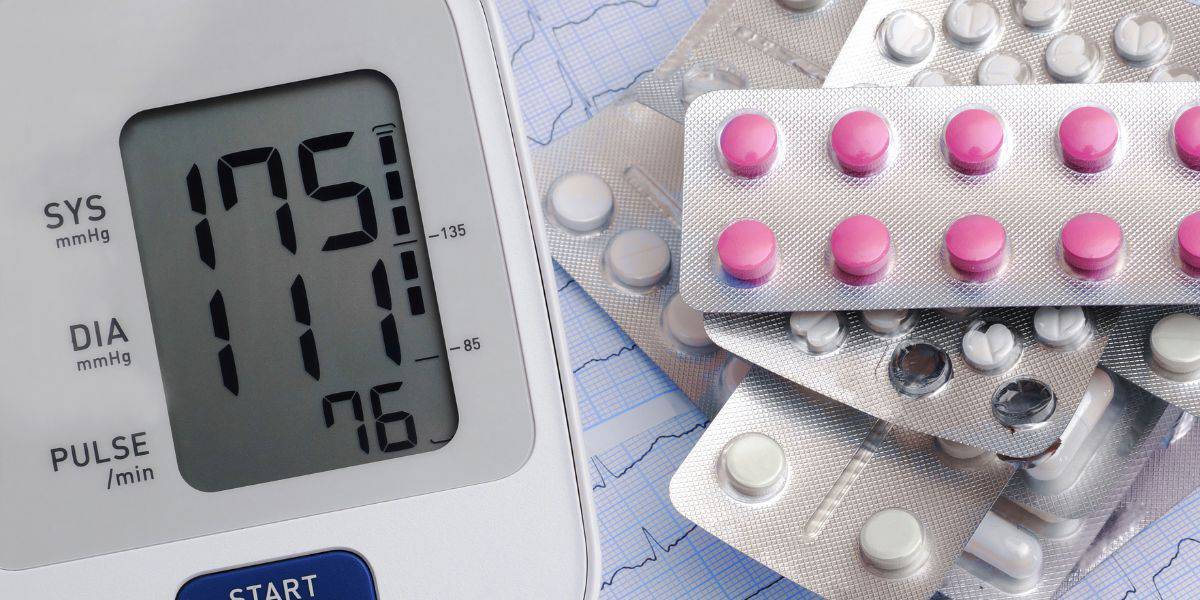 Listen Now
Do Blood Pressure Medicines Cause Foot Pain?
Read More
Listen Now
Do Blood Pressure Medicines Cause Foot Pain?
Read More
-
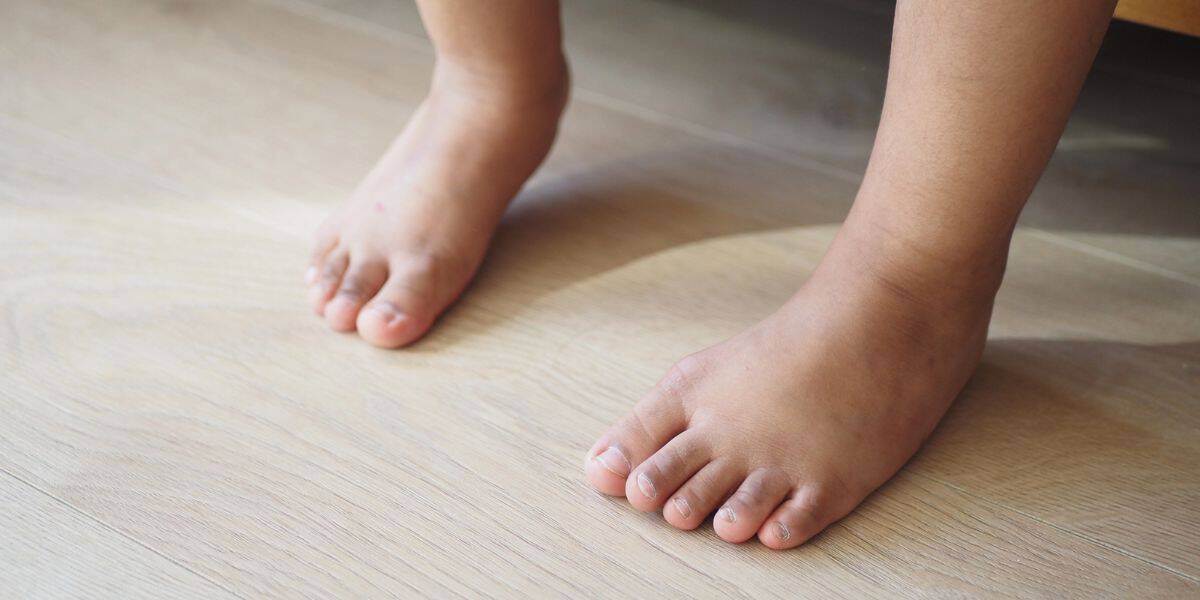 Listen Now
Pediatric Bunion Surgery
Read More
Listen Now
Pediatric Bunion Surgery
Read More
-
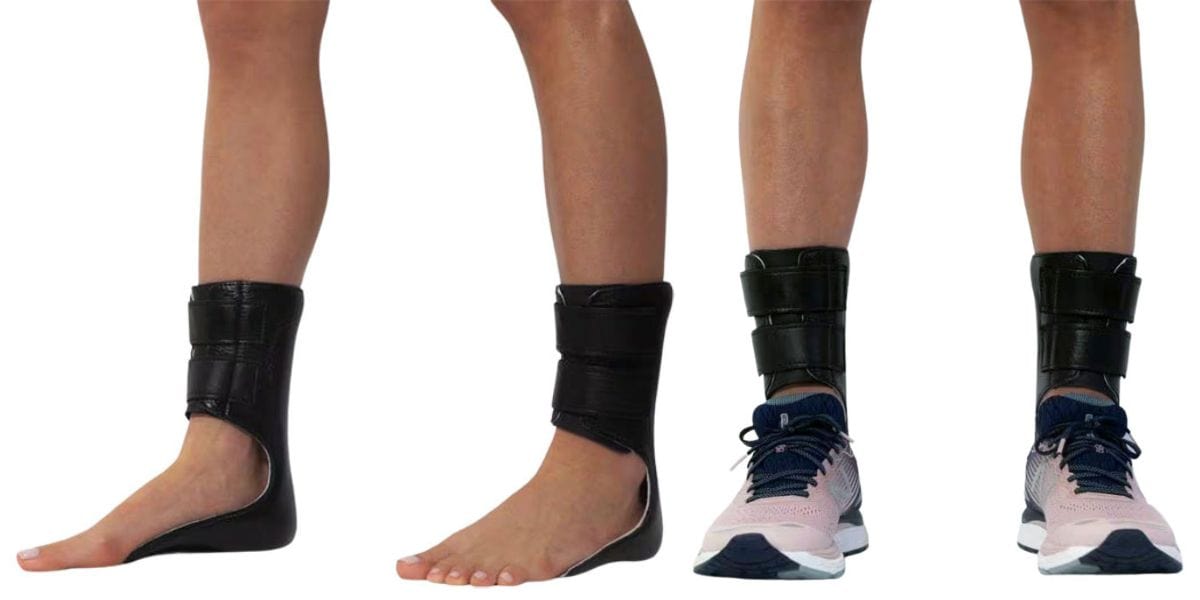 Listen Now
Moore Balance Brace: Enhance Stability and Prevent Falls for Better Mobility
Read More
Listen Now
Moore Balance Brace: Enhance Stability and Prevent Falls for Better Mobility
Read More
-
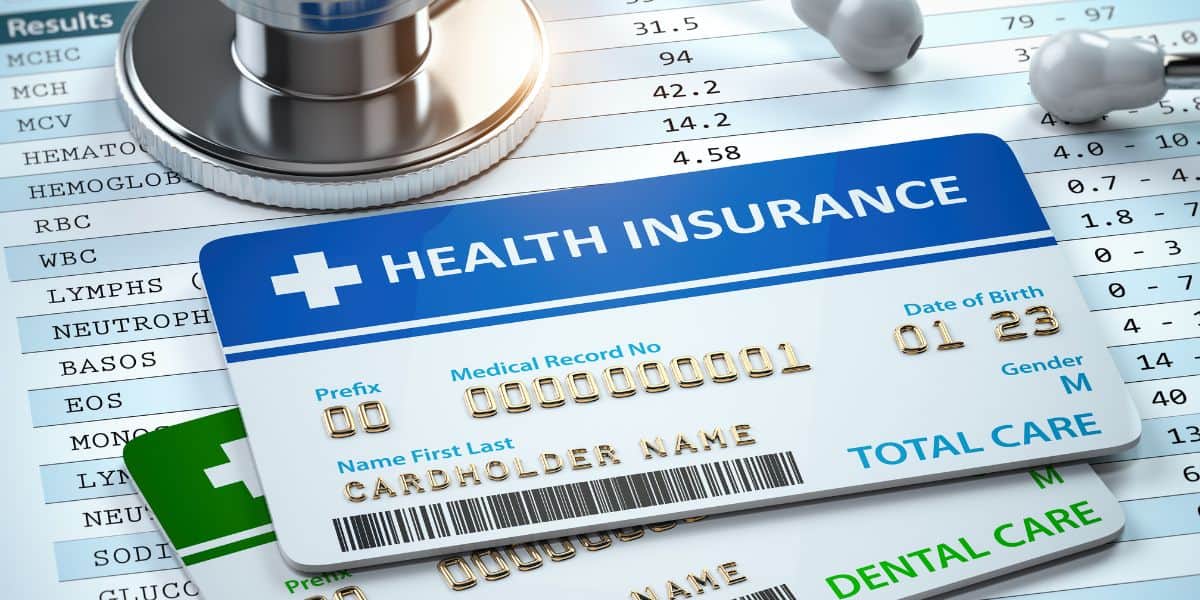 Listen Now
Is Bunion Surgery Covered By Insurance?
Read More
Listen Now
Is Bunion Surgery Covered By Insurance?
Read More
-
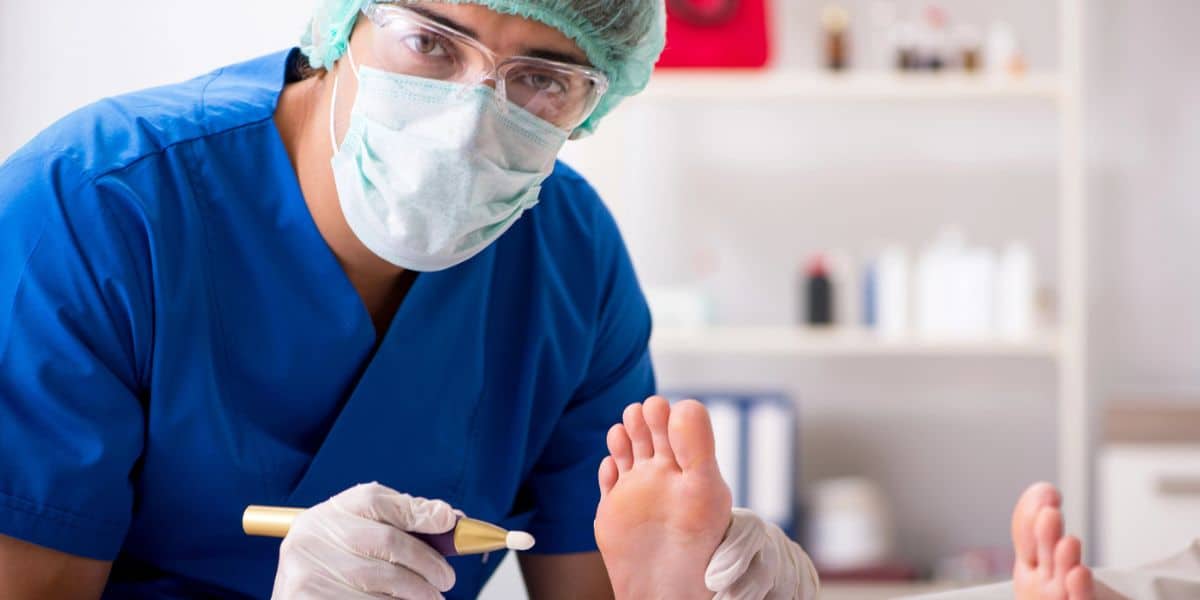 Listen Now
Should I See a Podiatrist or Orthopedist for Foot Pain and Ankle Problems?
Read More
Listen Now
Should I See a Podiatrist or Orthopedist for Foot Pain and Ankle Problems?
Read More
-
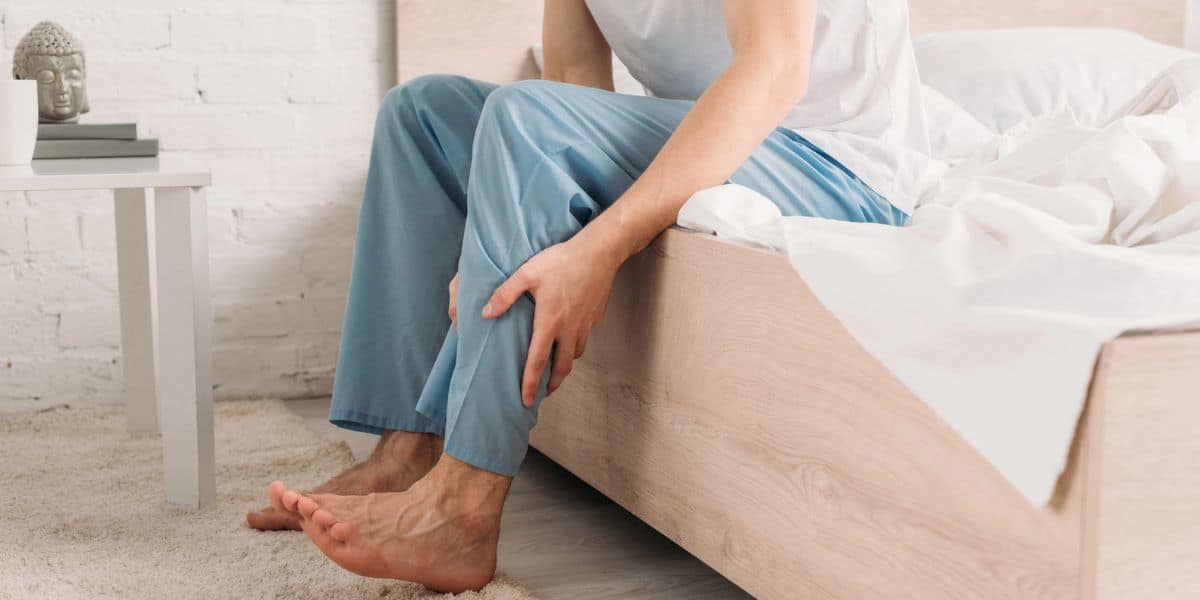 Listen Now
What Are Shin Splints?
Read More
Listen Now
What Are Shin Splints?
Read More
-
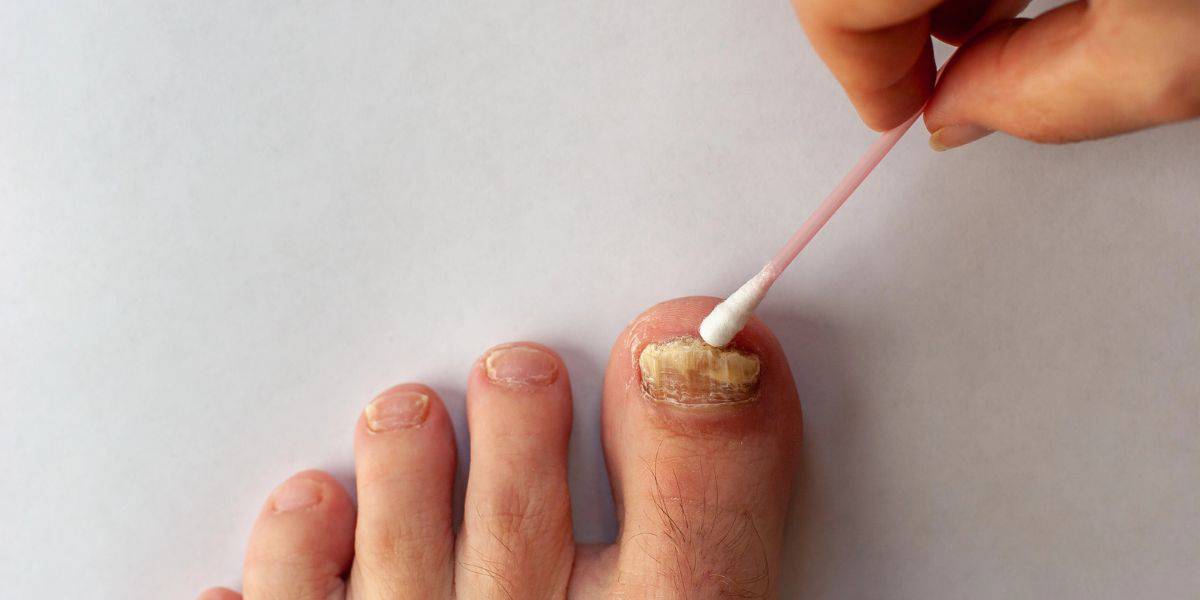 Listen Now
What To Do When Your Toenail Is Falling Off
Read More
Listen Now
What To Do When Your Toenail Is Falling Off
Read More
-
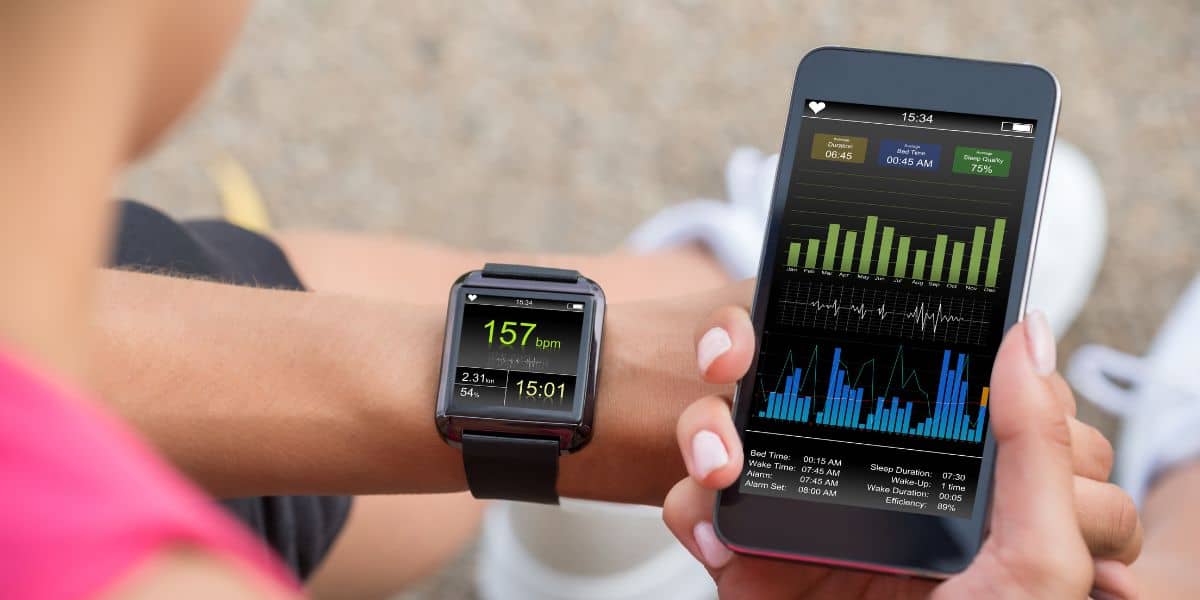 Listen Now
How Many Steps Do I Need A Day?
Read More
Listen Now
How Many Steps Do I Need A Day?
Read More
-
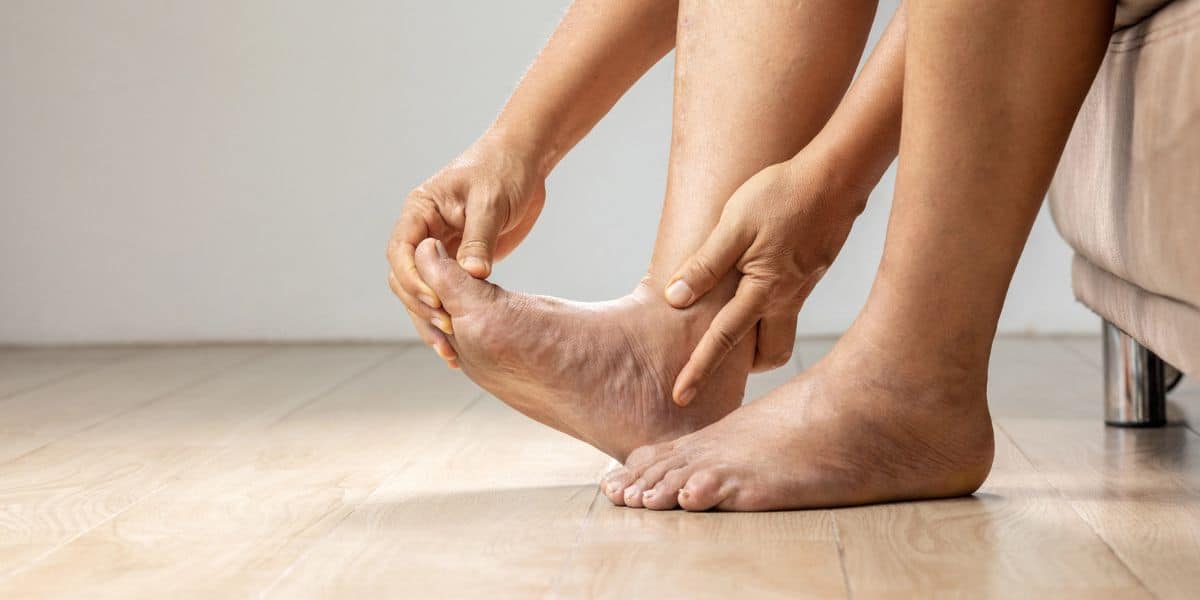 Listen Now
Top 10 Non-Surgical Treatments for Morton's Neuroma
Read More
Listen Now
Top 10 Non-Surgical Treatments for Morton's Neuroma
Read More
-
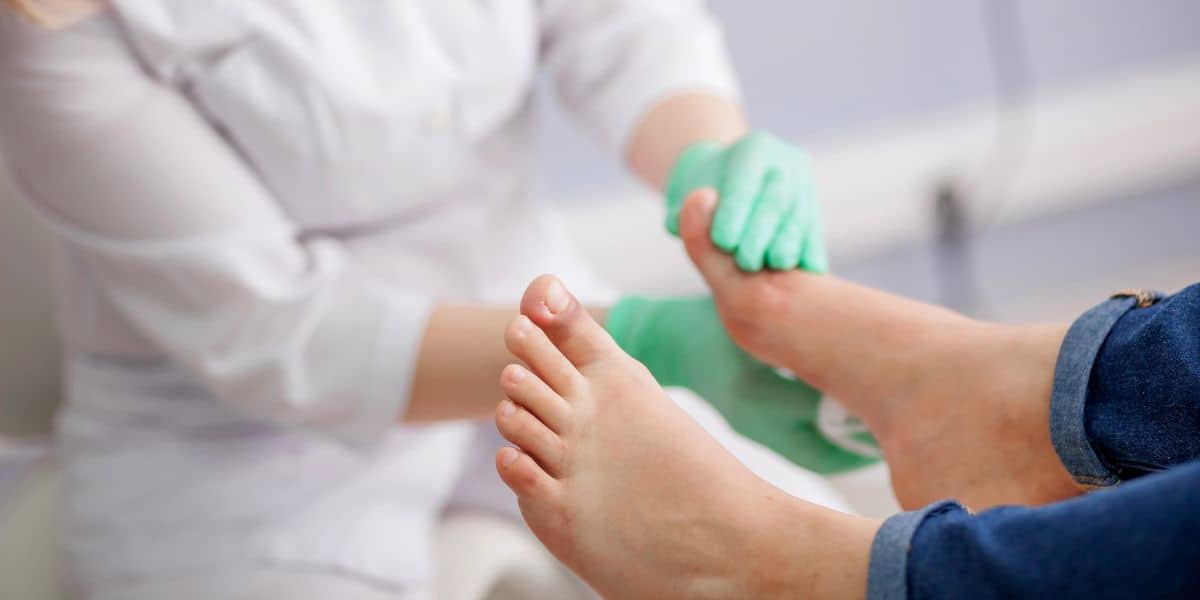 Listen Now
Non-Surgical Treatment for Plantar Fasciitis – What Are Your Options?
Read More
Listen Now
Non-Surgical Treatment for Plantar Fasciitis – What Are Your Options?
Read More
-
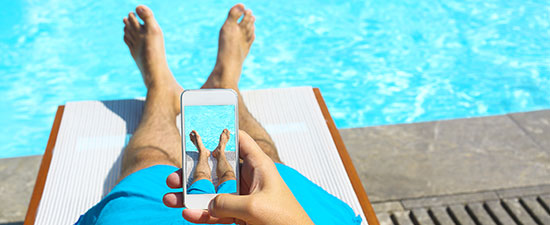 Listen Now
15 Summer Foot Care Tips to Put Your Best Feet Forward
Read More
Listen Now
15 Summer Foot Care Tips to Put Your Best Feet Forward
Read More
-
 Listen Now
Bunion Surgery for Seniors: What You Need to Know
Read More
Listen Now
Bunion Surgery for Seniors: What You Need to Know
Read More
-
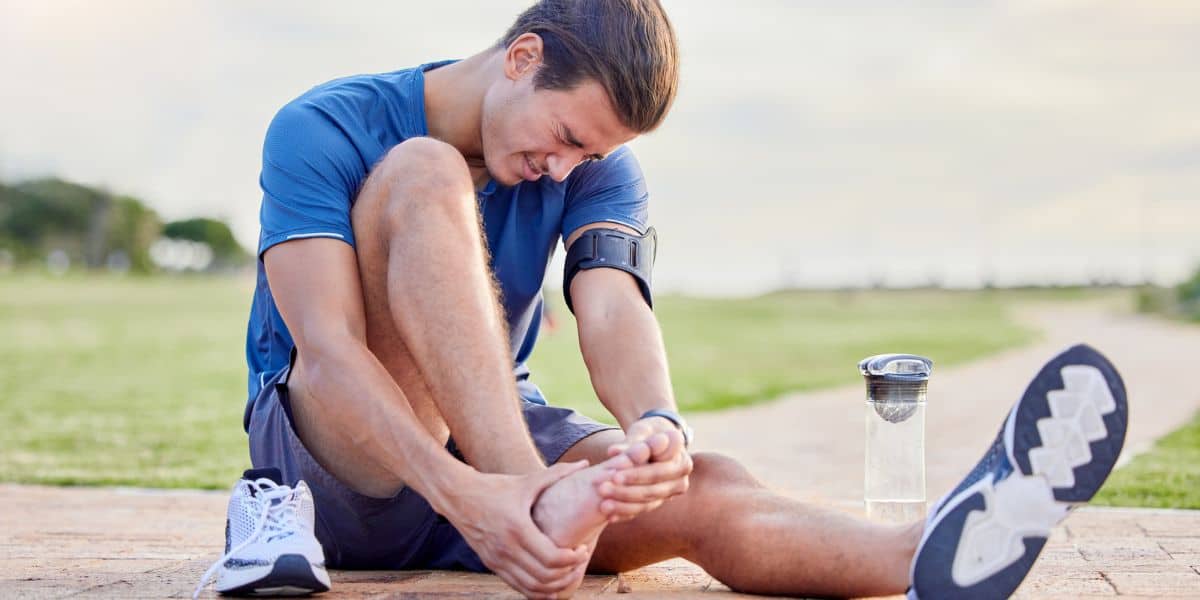 Listen Now
Bunion Surgery for Athletes: Can We Make It Less Disruptive?
Read More
Listen Now
Bunion Surgery for Athletes: Can We Make It Less Disruptive?
Read More
-
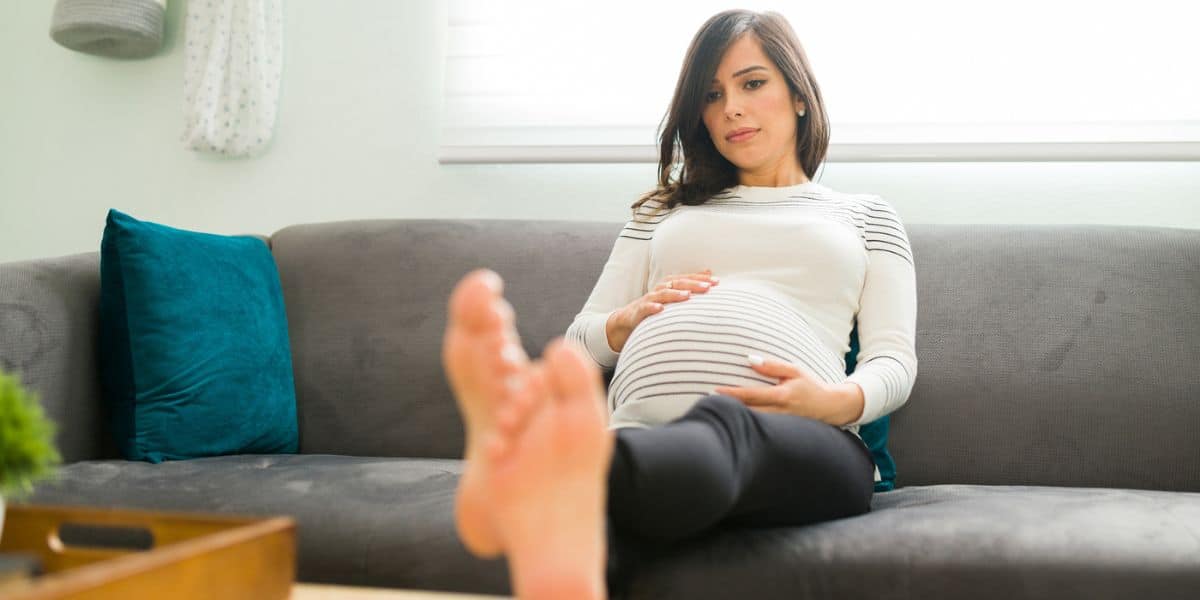 Listen Now
Swollen Feet During Pregnancy
Read More
Listen Now
Swollen Feet During Pregnancy
Read More
-
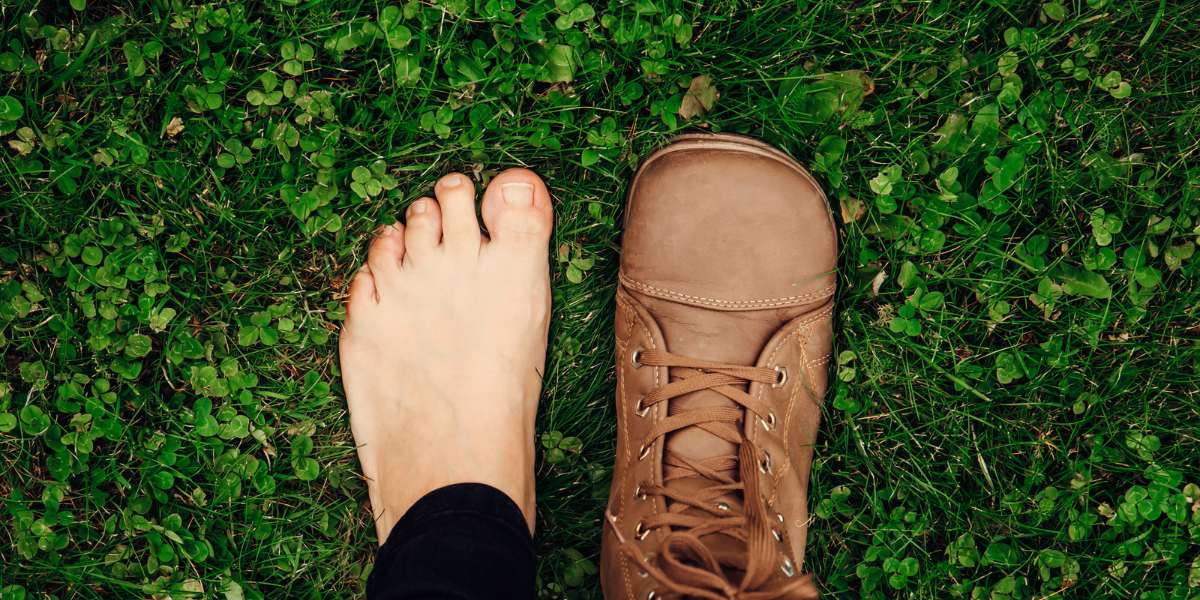 Listen Now
How To Tell If You Have Wide Feet
Read More
Listen Now
How To Tell If You Have Wide Feet
Read More














